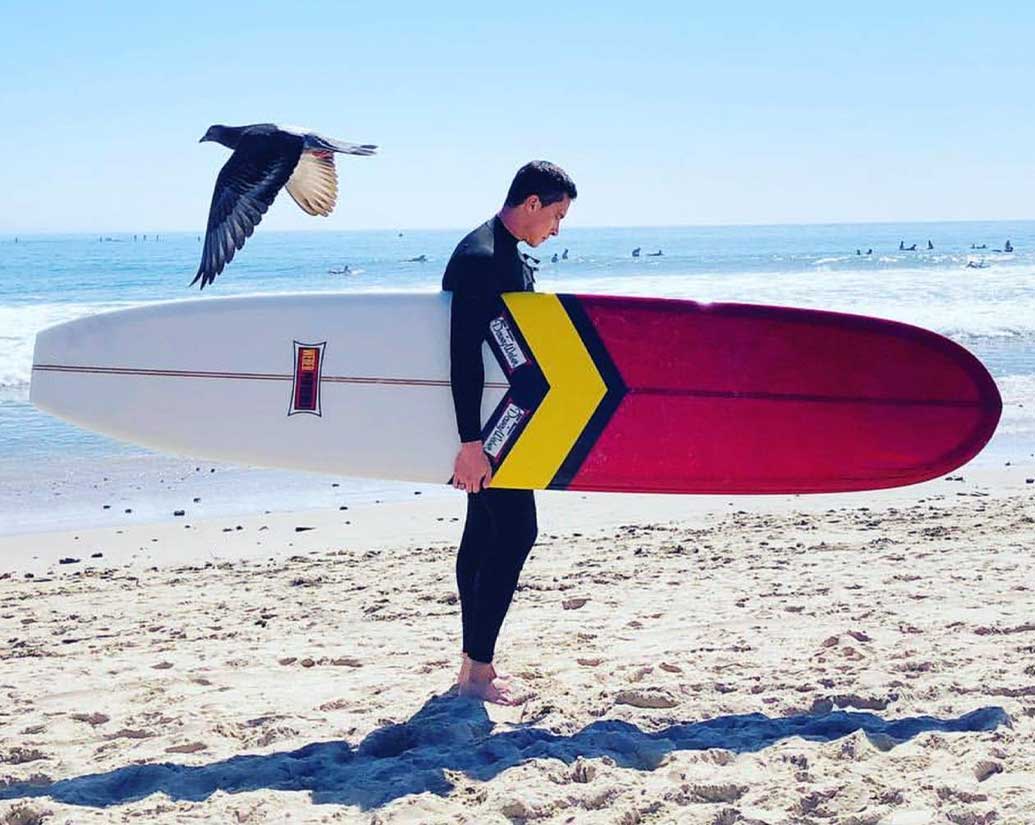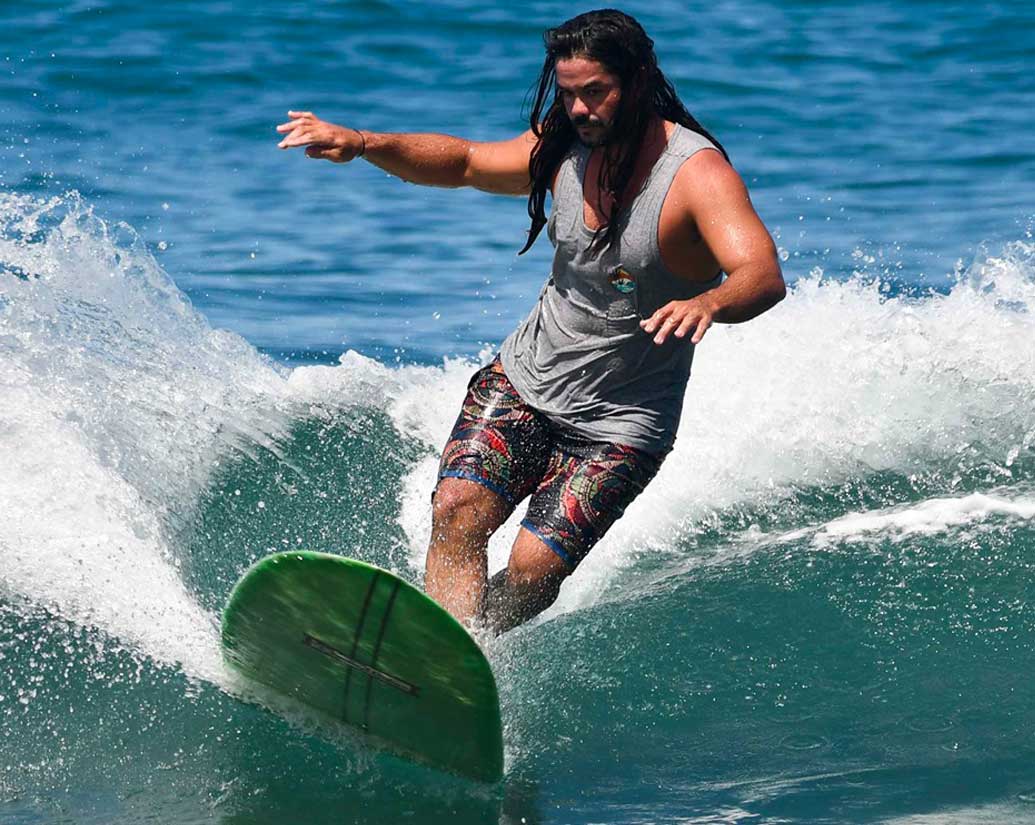A Little History
The “Little Man On Wheels”
He was the first “hotdogger.” A compact bundle of energy. He assaulted surfing with a unique flamboyant style. Dewey Weber was the guy who could quick step to the nose and never settle for less than maximum in the turn.
Drew Kampion, of Surfing Magazine, said, “With his trademark red trunks, platinum blond hair, and a definite attitude, Dewey defined the archetype of the Southern California surfer. Surfing was what he loved and did best; it allowed the artist, athlete and salesman in him to merge and manifest.”
Surf Bum To Entrepreneur
In the summer of 1960, relinquishing an athletic college scholarship, Dewey Weber embraced the world of business, on a surfboard. He borrowed $1500.00 to open a two-room surf shop on the beach in Venice, California. At twenty-two years old he was making surfboards in one room, selling them in the other and surfing every day.
Within five years, he was in a considerably larger facility supervising 50 employees. Dewey Weber Surfboards owned and operated four retail stores in California and Hawaii, and sold to other retailers in the U.S., Europe and Asia. His “Salesmanship “was legendary.
Industry Leader
In 1960, Dewey sat down with a man at the print shop and designed his mark. He used his favorite colors; red, white, and black; and put his signature in a flared rectangle. He put the mark on everything. He wore the colors and made sure it was “in your face.” It became internationally recognized. By 1962, he was selling Dewey Weber T-shirts with his rectangle emblazoned on them, in Europe and Asia.
Dewey, the non-conformist with an attitude, ran his surfboard manufacturing operation around the clock, producing up to 100 surfboards a day. Dewey’s marketing ideas were fresh and revolutionary. His promotional surfing tours and advertising campaigns set the standard for years.
He was the first surfboard manufacturer to give a model name (i.e. Performer) to designate a particular surfboard design. Dewey revolutionized surfing with the first “cut-a-way” fin (the infamous hatchet fin), the introduction of the first removable fin unit, and his implementation of the first “milling” machine; which was the forerunner of computer assisted design. He screen-printed his logo on one of the First colored T-shirts made by Towncraft.
Dewey Weber died January 6, 1993. His passing was reported on the AP Wire Service, CNN, Hard Copy, NBC, and CBS. Feature articles appeared in the Los Angeles Times, the Washington Post and news publications around the world.


